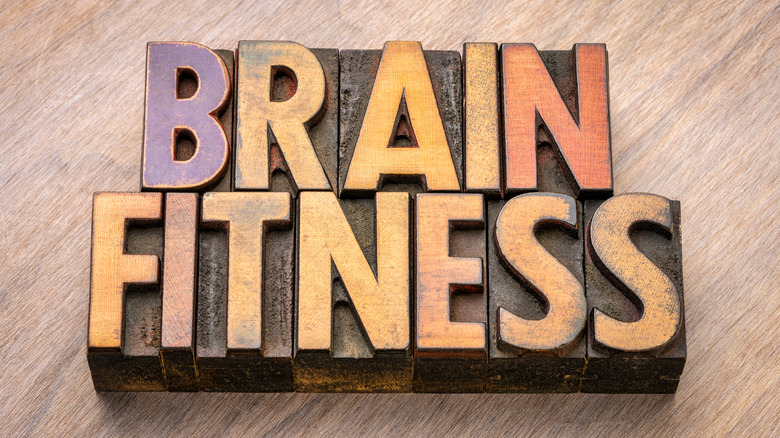Researchers Find New Clues As To Why Exercise Could Protect Against Dementia
Researchers often disagree on certain health basics, like just how much (and what type) of saturated fat, protein, or carbs are best, or whether a daily supplement actually provides any real benefit. However, there's one thing doctors, researchers, and lifestyle coaches unanimously agree on — getting regular physical exercise is good for you at every stage of life, and it has particular health benefits as we age.
With age, regular exercise becomes vital not only for maintaining a healthy weight and cardiovascular system but for supporting brain health, too. Recent research indicates it may even help prevent or delay the onset of dementia. "What's good for your heart is [also] good for your brain," Heather Snyder, vice president of medical and scientific relations at the Alzheimer's Association, told Discover Magazine.
Studies have long shown that with age, exercise and improved cognitive ability go hand-in-hand. However, new research published in Neurology sheds some light on just why that may be the case.
Physical exercise is good for the body and brain
Researchers from the Medit-Ageing Research Group conducted a study involving 134 adults over the age of 65, all of whom had no memory problems. They found that those individuals with the highest levels of physical exercise had a higher volume of gray matter in their brains — including in the memory-storing hippocampus — than those who were the least physically active.
The study also found that those who were the most active had higher rates of glucose metabolism in the brain than those who were the least active. This is significant because a decrease in glucose metabolism is often found in the brains of those suffering from dementia (via US News & World Report). "These results may help us to understand how physical activity affects brain health, which may guide us in developing strategies to prevent or delay age-related decline in memory and thinking skills," study co-author Géraldine Poisnel told US News & World Report.
If you're someone who has never exercised regularly, take heart — it's not too late to start now and reap the benefits, no matter what age you are. "The data suggest that it's never too late to start," Dr. Snyder told Discover Magazine. "There's always a benefit."


